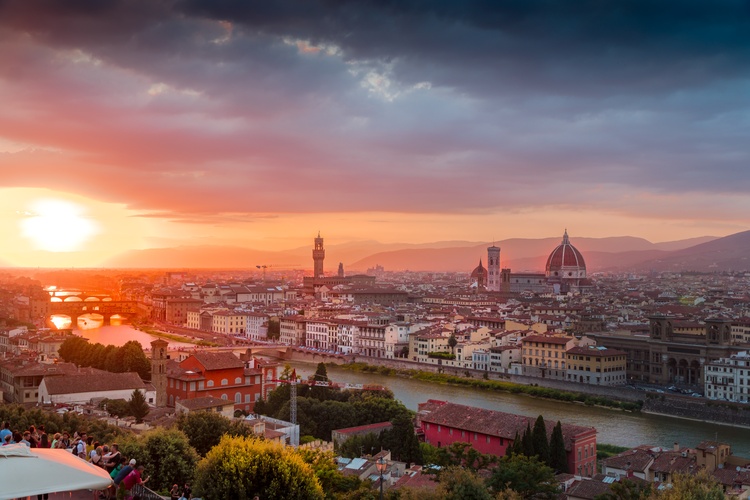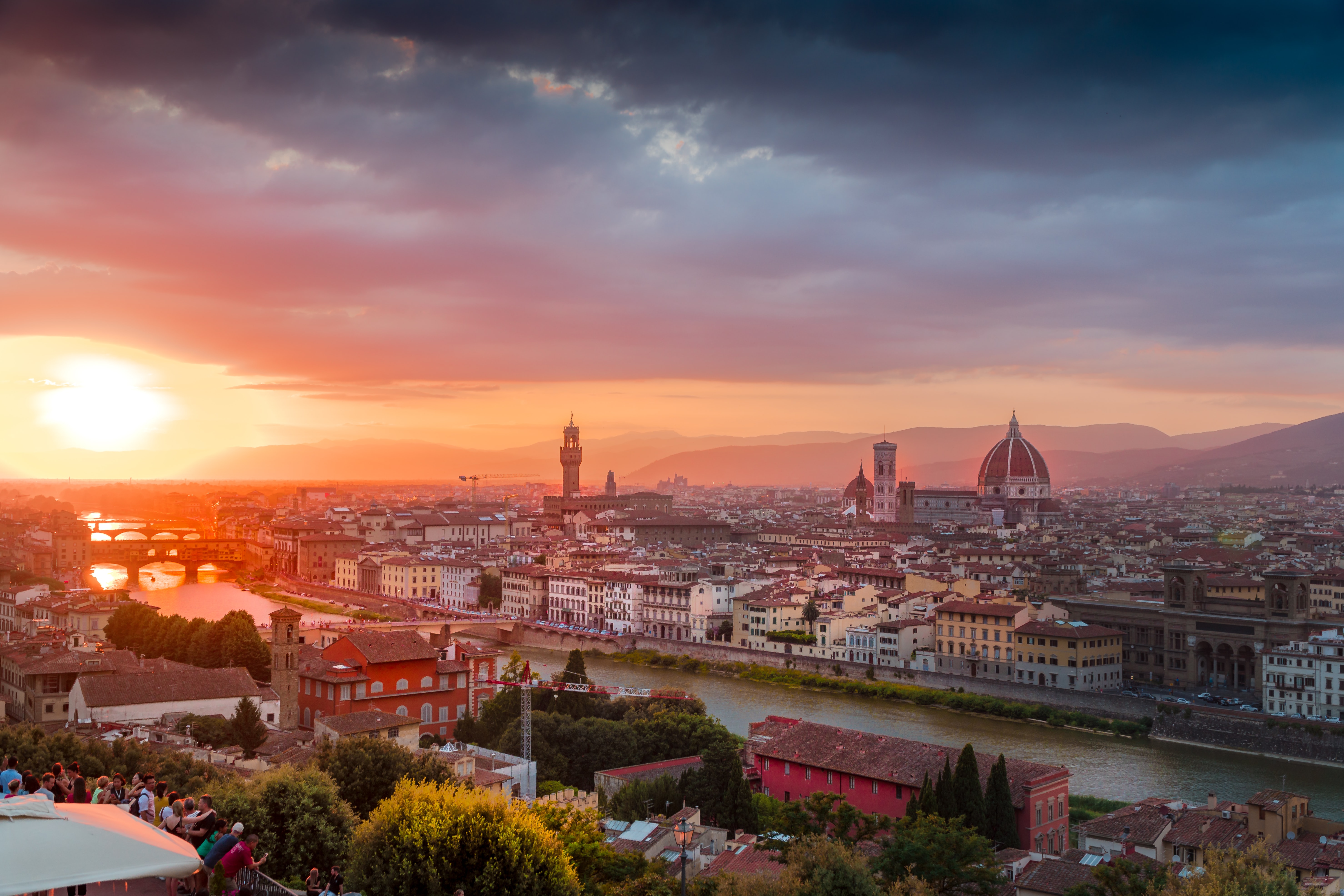The “anti-gathering” ordinance, in place from June 25, means new limits on the sale and consumption of takeaway alcoholic drinks in the historic centre of Florence and a ban on parking in six areas considered at risk of attracting large crowds on weekends.
The municipality stated that the ordinance aims to prevent the spread of coronavirus in crowded areas where social distancing can become nearly impossible.
The rules mean that entering certain parts of the Tuscan city is banned altogether on Thursday, Friday and Saturday nights between 6:00 pm and 11:00 pm, with the exemption of local residents or customers of bars and restaurants in the area.
The ordinance restricts access to large parts of the city, including the popular areas of Piazza Santo Spirito, Piazza Strozzi, Santa Croce, and Piazza S.S. Annunziata.
Eating or drinking on the steps of the Santo Spirito church is banned 24/7, as well.
Florentine newspaper L’Arno reported that police officers would be asking people to present receipts to prove they had been eating or drinking in the restricted areas.
Those who break the rules could face fines of between €400 and €1000.
Florence councillor Benedetta Albanese stated that the rules were put in place “for the livability of our streets and squares”.
The ordinance will be enforced until the state of emergency ends in Italy.
This is currently set to be July 31, though it is widely expected to be extended once again.
Most of the nationwide coronavirus measures have been dropped in Italy as of June 28, as every region was declared a low-risk “white zone”.
The nationwide midnight curfew, also intended to prevent gatherings, was scrapped on June 21.
However, regional and municipal authorities are free to enforce their own rules in addition to those imposed by the national government.












